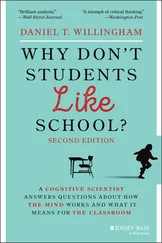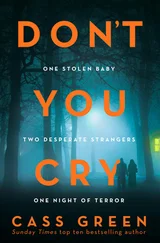The two young yakuza at his side were still alive.
Protected by the Boss’s intuition, that quaking in his vertebrae.
Someone’s going to die. Now.
A large dog leapt out of his blind spot, tore into the throat of the man on the Boss’s right, then, camouflaged by the spraying blood, wriggled across the ground and took aim at the man on the Boss’s left, his leg. He attacked. Took him down. Rolled, bit, killed him. This dog was not a member of the posse. Not a dog in active service, not a current fighter. But before age took its toll, he had been perfect. Even now he had a dignified aura that told you he was not a dog to be trifled with. Gravitas. He had a terrifying sense of gravitas. You could feel it now that he had reared himself to his full height. The Boss, standing face to face with him, could feel it.
Face to face. That wasn’t a blind spot.
The dog opened his blood-smeared mouth and barked.
Bang.
The Boss watched the dog tumble, dead, to the ground. He lowered the barrel of his new-model Kalashnikov, but he stayed there, motionless. He didn’t take a single step. He hardly even shifted his gaze. He was looking, now, at the first non-dog resident of this town unmarked on any map. The first human. Here, to this field of battle, his darling had come.
You killed Belka, she said.
In Japanese.
Hey there, hostage, the Boss said. Haven’t lost any weight, I see.
You killed Belka, his darling said again.
The Boss called her by her name. Her Japanese name. The name he had given his darling. The name he had given her because he was her father . She didn’t reply. She continued glaring at him. Ah, the Boss thought, just like in the videos. So, he asked, ready to break jail?
“Think again,” he said without waiting for her answer. “I came to end this,” he said.
“I’m talking about you ,” the Boss continued.
“You’re a pain in my ass. Fucking brat,” her father continued.
He had raised the barrel of his new-model Kalashnikov.
His daughter didn’t flinch, didn’t avert her eyes for a second, not even as she spoke. Said something. Issued a command. In Russian. Instantly the shadows sprang into motion, darting from a cluster of trees along a road, from behind a building, from a second-floor window. Dogs. Seven dogs. Still too young to be called adults. KILL, his darling was saying in Russian. ATTACK. ALL OF YOU. AND YOU, FORTY-SEVEN, FINISH HIM. Six dogs in a cluster. First one of them snatched the Kalashnikov in its mouth, flung it away. The weapon clattered as it hit the ground. The target’s arms and legs were splayed, as if he were being crucified—the dogs were tugging on his felt boots, biting into his bare palms and the sleeves of his coat, pulling. He stood there, almost upright. And then one more dog, number 47, came running. Thirty-eight miles an hour. He leapt. Bared his fangs. Sank them into the soft, fleshy throat. Twisted. Took him. Finished him.
He was finished.
He tumbled forward, spouting blood.
The Boss. The man they called the Boss. Her father.
And there was his daughter.
There was the girl, seven dogs, already done with their prey, gathering at her feet.
For a few minutes, none of them moved.
They stayed there, perfectly still. The girl and the dogs.
Then the girl turned around.
She had noticed that someone was there.
The old man.
She said only a few words to him. In Japanese. “Hey, Old Fuck, I just earned the name. I’m Strelka now.”
Her voice was shaking. Tears brimmed in her eyes.
Dogs, dogs, where are you now?
Everywhere. You scattered. You increased without limit. Naturally, some of you bore puppies and some didn’t. Bloodlines extended, ended, became intricately intertwined. Thus were you born, one dog at a time, and thus did you die. One dog at a time. Your lives had limits. Your family trees, however, kept growing.
It had begun on the western tip of the Aleutian Islands, and it continued.
All across the globe.
You would never go extinct.
But you were toyed with, exploited. Why? Because this was the twentieth century. A century of war. A century, too, of military dogs.
Two great wars were fought during the twentieth century on the chessboard of the world. In the first half of the century, that is. In the second half, two more wars were fought, both alike in many respects. Both were limited wars. Both were offshoots of the Cold War, and both were played out in Asian nations. In the first, American soldiers shed their blood; in the second, Soviet soldiers shed theirs. The first unfolded in Southeast Asia; the second in Central Asia.
One war on the Indochinese peninsula, one war in Afghanistan.
Each lasted a decade.
America first sent combat forces into Vietnam on March 8, 1965. The Vietnam War lasted until 1975.
The Soviet Union sent its forces across the border into Afghanistan on December 25, 1979. The Soviet-Afghan War lasted until 1989.
The Vietnam War and the Soviet-Afghan War. A quagmire for each nation. Each a product of the Cold War, each a decade long from the point of direct intervention to the end. Similar indeed. Dogs, dogs, how you were toyed with, exploited, in the name of these two catastrophes! And it wasn’t only the United States and the USSR that left their mark on your family trees. It wasn’t only these two nations that pruned and spliced, made your destiny grow.
There was also China.
Red China, the third player.
1963. Mao Zedong despised Khrushchev.
At that time, in that year, every dog in the PLA Military Dog Platoon was descended from Jubilee. The platoon was not permanently stationed in any military region; it was assigned instead to the highly mobile field army—the army’s main force, which went wherever strategy demanded.
1963. America was operating under a misapprehension. In its eyes, the globe was still a page in a coloring book that two ideologies were rushing to fill in. It was, so to speak, a geographical contest. Needless to say, communist states were red. This much of the American interpretation was correct. Even America wasn’t always wrong. And yet… and yet… it had it wrong. America had failed to understand that the red patches in the book were by no means all the same tint of red. Or perhaps the Americans understood that fact but decided to ignore it, intentionally chose to be color blind and narrow-minded. America’s political decisions were all based in a sweeping, simplistic judgment that red is red, even when the crayons were, in reality, of quite different hue.
1963. The USSR and China were both red, but those two reds were nothing at all alike in brightness or saturation. America’s decision to overlook that distinction would prove politically fatal.
But America clung to that fatal vision.
What were the roots of this altogether inflexible approach? It began in February 1950, with the signing of the Sino-Soviet Treaty of Friendship, Alliance, and Mutual Assistance. At this point, America decided that Red China was essentially a satellite of the Soviet Union, and it adhered steadfastly to this view. As part of its anticommunist stance, it continued to treat Chiang Kai-shek–led Taiwan—which is to say the Kuomintang and the Republic of China—as China’s true representative. The Sino-Soviet Treaty of Friendship, Alliance, and Mutual Assistance had been signed, however, by Mao Zedong and Joseph Stalin. Mao had trusted Stalin. But Mao did not trust Khrushchev, who had taken over after Stalin and criticized Stalin at the Party Congress in 1956.
Here, in a nutshell, were the dynamics of the Sino-Soviet opposition. America didn’t recognize this, though. America failed to see that it all hinged on the personal relationship between Mao and Khrushchev. This was the season of Mao’s hatred of Khrushchev. Khrushchev, for his part, was wary of Mao. History is moved, rolled this way and that, so simply. The twentieth century was a pawn. As were the dogs.
Читать дальше












